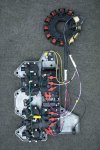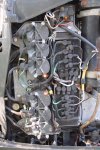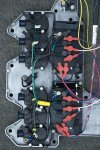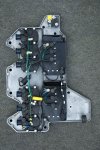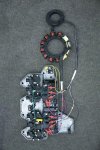accentphoto
Petty Officer 2nd Class
- Joined
- May 4, 2011
- Messages
- 128
Getting ready to install a bunch of new ignition parts and I was curious if there was any reason to or not to use the Dielectric Silicone Compound.
I was hoping that this stuff would keep if not help make better the electrical connection of each part to the terminal mounts on the rectifier, switch boxes and coils. I was told many years back that it never hurt on a car but I am in a different boat now (bad pun intended).
Suggestions? Is it possible that this will impede the metal to metal contact process if I put it on top, sides and bottom of the terminals, threaded posts and nuts? I am trying to cut down on the oxidation process from the environment I will be running the motor in.
I was hoping that this stuff would keep if not help make better the electrical connection of each part to the terminal mounts on the rectifier, switch boxes and coils. I was told many years back that it never hurt on a car but I am in a different boat now (bad pun intended).
Suggestions? Is it possible that this will impede the metal to metal contact process if I put it on top, sides and bottom of the terminals, threaded posts and nuts? I am trying to cut down on the oxidation process from the environment I will be running the motor in.




















